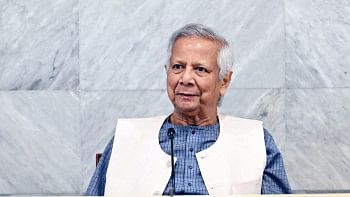Future of gas cars - How long till everything goes electric?

Many would safely assume electric means of transport as the future of commuting. As per statistics by the SMMT UK monthly list of e-vehicles, compared to as far as 2019, there has been a 16.1% increase in electric cars, owing to them being regarded as more sustainable and environmentally friendly. Regular petrol cars, on the other hand, are expected to be phased out within 2030, as rules and regulations regarding emissions and carbon footprints have been getting tighter in most countries.
Although petrol-running cars have been adapting to the times, the recent drastic hike in fuel prices might be an indication that their time is up. As prices of gas skyrocket due to inflation, hybrid systems are being considered more and more due to being more efficient in the long run. Now that the global phasing of combustion engines is near, how far is Bangladesh from adapting to an electric future?
Petroleum has been the backbone of transport from the dawn of time and since then, people have been trying to find an alternative to petrol for transportation for the sake of efficiency. There have been alternatives such as Hydrogen cell power trains but the most common alternative has been electricity. Be it in hybrid powertrains, where electric power and internal combustion are used together to reduce fuel consumption, or just completely electric, where it can be said Tesla Motors from Elon Musk has set off the trend, electric vehicles are steadily taking over.
In the last ten years, more people have been shifting to electric cars as there are fair advantages to them compared to gasoline-powered vehicles. Basic maintenance of electric cars is easy and cheap because there are no liquids involved, unlike the various oils and lubricants needed to run a conventional internal combustion engine. Since electric powertrains have less number of moving parts, there are fewer possibilities of parts which could break.
Electric cars are also known to be more environmentally friendly, as these vehicles are known to have little to no emissions when they are running. Because no exhaust gases are given off, they contribute to a smaller carbon footprint with less CO2 emissions.
Although it can be seen that owning an electric car for daily commute seems like a feasible option, the powertrains come with their fair share of disadvantages, such as range anxiety and charge times, just to name a few. Going on longer trips is always a hassle, constantly having to worry about whether the charge would last the whole trip, as there is no certainty when the battery would die if it is on the lower percentages.
Charge times can be long, taking hours to bring the car to operating conditions, whereas compared with refuelling conventional gasoline cars, it needs minutes to fill up the tank which can last hundreds of kilometres. Another major problem is that since electric cars run on mostly software integrations, sometimes glitches or non-responsive systems can brick the car and cause it to not start at all. There have also been cases of cars just blatantly not starting because of software updates mandatory to the mainframe.
Bangladesh, on the other hand, has been slowly but surely adapting as more electric cars are being imported, making the choice of electric vehicles more normalised than before. Actual laws are being made regarding the vehicles, with brands like DSFK making means of transport such as basic cover vans electric and bringing it to our country, such as the EC36, which was launched this year.
Electric means of transport can be advantageous for countries like Bangladesh since in our daily commuting we spend most of our time in gridlock due to heavy traffic. Since electric cars can be instantly switched on and off, battery life can be saved and city commuting can be made more efficient. Although on longer routes there will be the case of range anxiety because Bangladesh is yet to have a charging station, which should be implemented when more electric cars get common around the streets. Although the most common adaptation for the country recently has been hybrid cars, in the near future, the population might be adapting to electric cars sooner than we think.
There is no doubt that in the near future, electric cars will be the main means of road transport, but it is going to need about 10 to 15 years to be properly utilised in Bangladesh. When it comes to conventional petrol cars, energy can be brought to the car if there is an unexpected emergency. When an electric car dies, there is still no way apart from taking the car on the back of a truck to the nearest charging station, or to the owner's residence where supposedly there is a power outlet.
There is also a lack of infrastructure as undoubtedly there are more petrol filling stations than charging points and until the ratio of infrastructure can be marginalised, gas cars will not be obsolete. All in all, electric cars in Bangladesh can definitely be a welcome solution, but without proper utilisation and national support, it may remain a pipe-dream; keeping us rooted with our go-to four-wheeled gas-run partners.


 For all latest news, follow The Daily Star's Google News channel.
For all latest news, follow The Daily Star's Google News channel. 








Comments